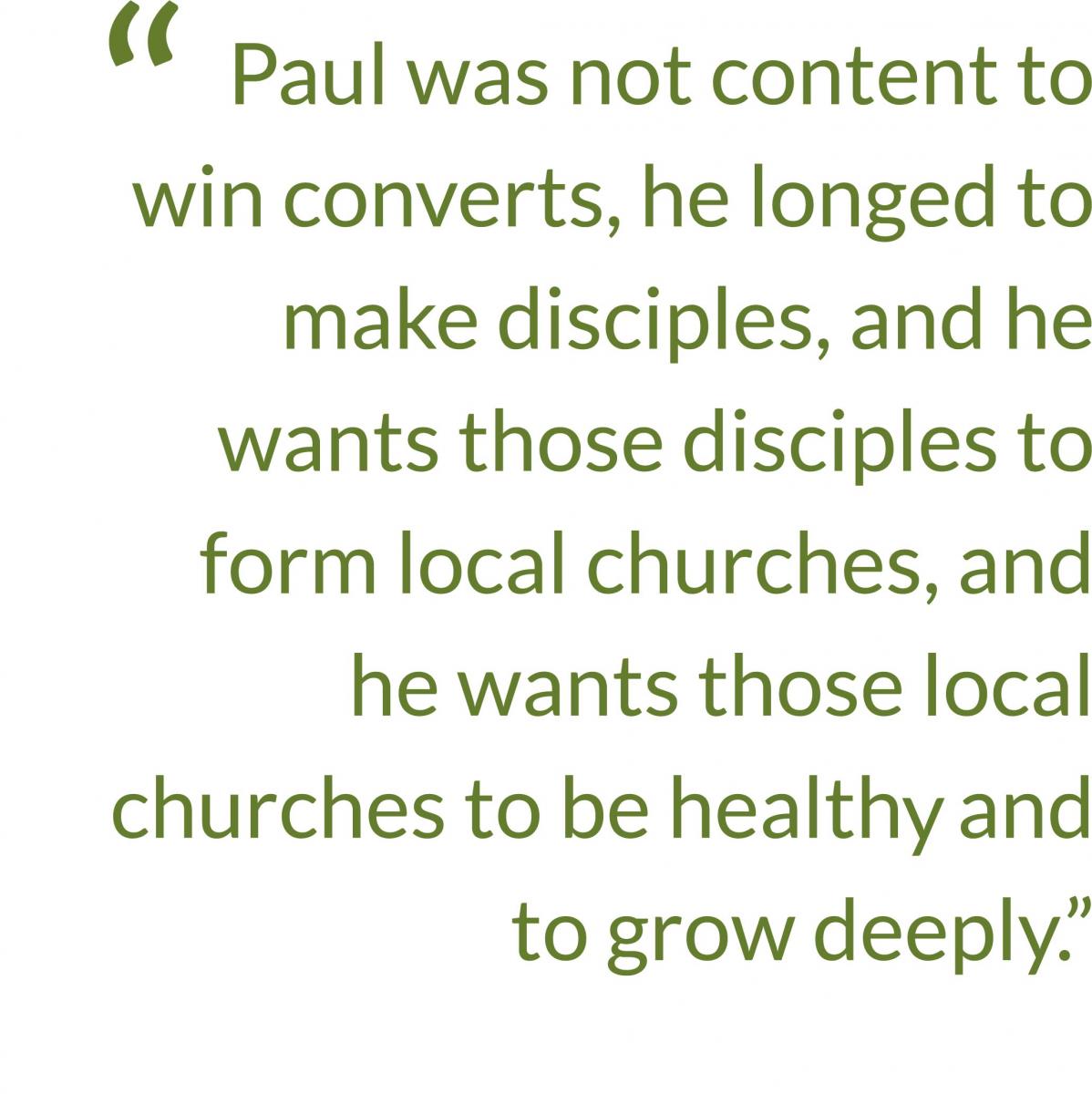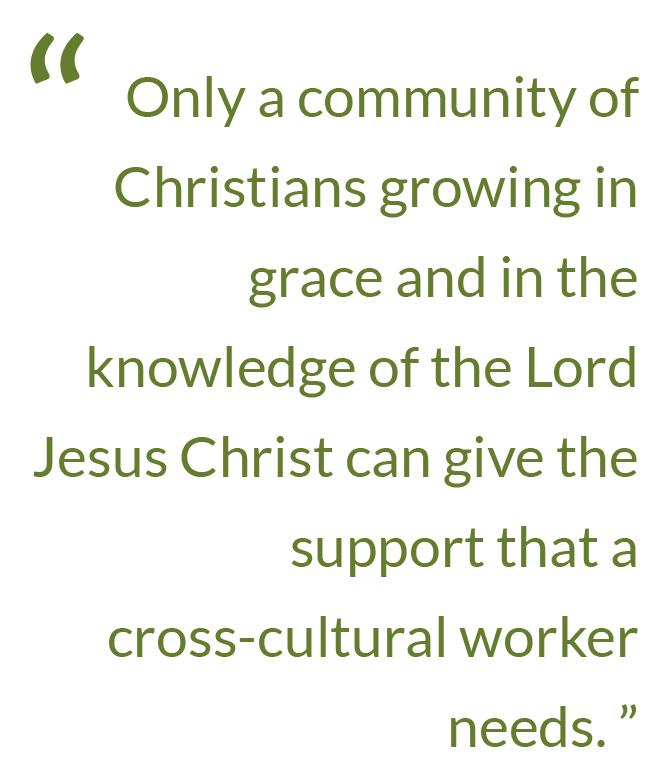
God's Mission and The Local Church: GROW (Part I)
If you attend a well organised missions event where your mind and heart are stretched by the need of the world and the urgency of the task of making Christ known, it is quite likely that you will have asked yourself a couple of questions that can be hard to answer – what part am I to play, and what part can our church play in the work of reaching the lost with the gospel? To spare our excessive guilt we have formulated a catchphrase which seems to cover things quite well – pray, give, go. This is undoubtedly a good ABC of what can be done, and it is helpful as far as it goes, but it does not do full justice to what local churches can and ought to do when it comes to mission.
In this post I want to look at some of the Apostle Paul’s teaching in the book of Romans, and from there highlight a ‘4th way’ where our walk with God personally, and our life as church locally, joins up with what God is doing globally. Romans 15 is an excellent place to turn to if we want to understand something of the dynamic which ought to exist between the church and mission. This is one of those pieces of tail end material in Paul’s letters that we often and easily overlook, but it provides for us two points of connection between the local and the global which I am convinced, if grasped, can give us a different approach to how we live day by day, how we serve side by side in the local church, and how we engage meaningfully with global ministry.
The health of the local church in global mission
It is all too easy with a book like Romans to forget the reason for its existence. If we come from a Christian background we will be familiar with the fact of Romans, this weighty book which lurks ominously behind the sweeping drama of Acts. We might even be familiar with some of the features of Romans, either its broad arguments, or sample texts that we have learned for evangelism. We tend to forget, however, that the transmission of this text and the motivation behind its composition are of enormous import in our understanding of what it has to say.
This is a letter, a real life document, subjected to the same processes and pressures that any epistle would have faced in travelling from one place to another in its day. Paul has written this letter to Christians in Rome, many of whom he has never met, and some of whom he is acquainted with. He wants to minister to them, and through them he wants to make a connection that might be profitable for them and the work that Paul hopes to do. This means that the weighty doctrine, the wonderful truths that this book contains, are in a certain sense a means to an end. Paul is establishing common ground, he is teaching the saving grace of the gospel, so that he might identify his ministry to these people, in order that they in turn might endorse his ministry as he presses on for Spain.

Paul, however, is also deeply concerned about the health and life of the local church in Rome, and so he teaches them. He writes to them ‘very boldly by way of reminder’ (15:15), a theme which he first introduced in chapter one. There he exulted in the fact that the Roman believers’ faith ‘is proclaimed in all the world’ (1:8), and shares his longing ‘to see you that I may impart to you some spiritual gift to strengthen you’ (1:11). Paul here marries the broad impact of the Roman church with their fundamental faith, and he wants to build them up, to bless them, and strengthen them.
Paul understood all of this as part and parcel of his apostolic ministry that he was given grace ‘to be a minister of Christ Jesus to the Gentiles’ (15:16). Serving Christ in this way for Paul was priestly, he was offering up the Gentiles to God in fulfilment of his commission, and he was proud of what Christ had achieved through him. The sweeping arc of converts and local churches which could be plotted from Jerusalem to Illyricum was testimony to what the Saviour had done through his labours. From this perspective, Paul is deeply concerned with Rome’s heart, with the church’s (or churches’) understanding and application of the gospel – their health was something in which he felt an investment, and for which he took responsibility.
That emphasis on local church health, that principle which Paul articulates through the context of his letter, is reflective of his wider practice. Paul was not content to win converts, he longed to make disciples, and he wants those disciples to form local churches, and he wants those local churches to be healthy and to grow deeply. This was a golden chain in the missiological approach of Paul – the work of making Christ known was never anything more than the local church, and it was never anything less. The health and growth of the churches was not just for the sake of their immediate context, but also for the sake of other cultures yet to hear.
Philippi would support Paul in prison, the church disguised as a conundrum that was Corinth, with all of its complexities and vexations, was also to be a base from which Paul would move further with the gospel (1Cor 16:5-7). So the health of these churches, their addressing of the issues Paul raises, their resolving the difficulties he highlights, their reconciling relationships within the church, their rejection of false doctrine, and their deeper understanding of the truth, is part and parcel of how they might be engaged in effective work in their own locale, and right around the world.

All of this is so helpful to us when we encounter the challenge of mission, when we ask ourselves those ‘what can I do?’ kinds of questions. We must certainly pray, give and go, but we also need to grow! It is clear from the New Testament that the health of the local church is at the heart of global mission, that Paul put no division between existing churches’ growth downwards with the gospels growth outwards, that the discipleship of individuals and the development of churches could only be to the praise of God’s glory and the furtherance of God’s kingdom.
This is no less true today, and we need to think this through in the most practical terms. Local is how God does his work. So the next generation of missions workers need a healthy church in which to hear the gospel, understand and apply the gospel, to grow in their faith and in its application. A stunning question that I occasionally ask myself is, if a young man from our church went today to the mission field to plant a church relying solely on what he gained through our ministry in Millisle, would he have the understanding and tools to plant a biblical and sustainable church? The purity of the gospel preached in the local church, will determine the purity of the gospel planted where there is no church.
The personal walk of believers in the ordinary day to day of Christian living is also a measurable influence on the future health of missions. We have imbibed a mindset which rings with the siren song of individualism, but our faith isn’t really totally personal – it is central to the life and health of others within and without our acquaintance. We might rejoice that our faith means the world to us, but we also need to take responsibility for the fact that our faith also means us to the world – that there is a corporate dimension to the seriousness with which we follow the Saviour.
This is true in terms of giving as well. It takes considerable spiritual insight to see that giving what we have for what God can do is the best of offers, that our calling is to first give ourselves to God, then to give from our substance to his work.
The health of the local church is also vital to the souls of missionaries. Only a community of Christians growing in grace and in the knowledge of the Lord Jesus Christ can give the support that a cross-cultural worker needs.
This text was originally published in Insight Magazine Issue: Dec' 19/Jan '20. To subscribe to Insight Magazine contact your church Magazine Secretary or contact insight@thebaptistcentre.org for more information.



